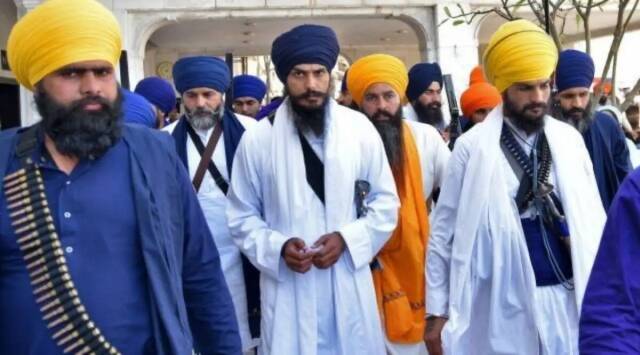NEW DELHI: More than three weeks after escaping from Jalandhar, Khalistan backer Amritpal Singh Sandhu was seeking to achieve one of the objectives with which he was promoted by his ISI handlers—that of reviving the “Khalistani” narrative.
Due to his swift rise and subsequent escape, policymakers based out of India, think tank experts and the international media are all now writing about how India was facing the prospect of the “revival of Khalistani separatism”. Such an assessment was, however, totally disconnected from the truth on the ground, people in the security apparatus stated.
According to establishments in Delhi tracking these developments, much of the international media coverage in his case was pro-Amritpal despite him, among many other crimes, storming a police station to free one of his supporters who had assaulted a man.
The apathetic approach among the policymakers in the UK, Canada and the US to the violence-favouring Khalistan group leaders and the favourable reaction among media houses across the West has been attributed to the funding that the pro-Khalistan organizations were receiving to paint Amritpal as the poster boy of the Khaslistan movement.
Investigations revealed cited multiple articles, papers that have come up in the last few weeks painting India as a “draconian” state. These narratives are also talking about how the Khalistan separatism was as “genuine as the Kashmir issue”, both being fictions that are on the lines of what the Pakistan deep state and activist bodies like Organisation of Islamic Cooperation (OIC) have been pushing for decades at international forums.
The criticism of India, officials say, is being done for the “internet shutdown” that was brought into effect to stop Amritpal’s supporters from coordinating to carry out violent actions, and also to stop his escape (which he eventually did), and stop pro-Khalistani elements from spreading motivated rumours in Punjab and neighbouring areas to instigate attack on public properties and security officials.
In many sections of this international narrative, Amritpal has been shown as a “Sikh preacher” despite things being abundantly clear that he was leading an armed group that had scant regard for laws governing the land or for the tenets of the great faith that they profess to uphold, a faith that has universal brotherhood at its core.
Officials have also gathered inputs that show how members of pro-Khalistan groups were preparing “moot points” supporting Amritpal’s rise and the “injustice” that he was facing from Indian authorities. In short order, the same points were subsequently printed in the international media.
Amritpal fuels Khalistan narrative among international entities
- Advertisement -

